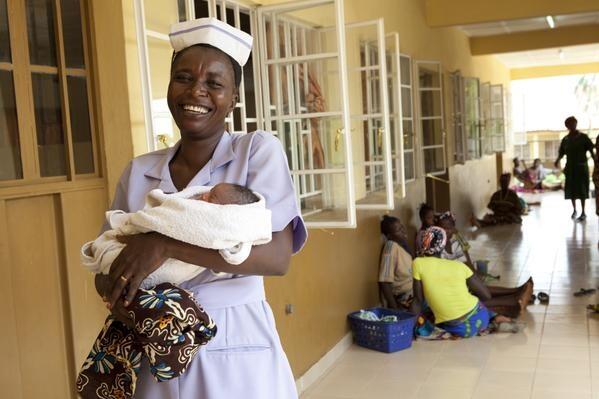
Research carried out by LSTM’s Centre for Maternal and Newborn Health (CMNH) found that despite adequate numbers of maternal health workers showing up to work, it was the patients who stayed away at their own peril for fear of catching Ebola. The study, commissioned by international development charity VSO, has shown the devastating impact of Ebola on Sierra Leone’s pregnant women and newborn children.
The research – in partnership with WaterAid and the Ministry of Health and Sanitation in Sierra Leone – was carried out from February to July 2015. Data was collected from 81 interviewees and 76 health care facilities across the country which provide emergency obstetric and newborn care.
Key findings from the report during the epidemic:
- 18% decrease in women accessing antenatal care.
- 22% decrease in women accessing postnatal care.
- 11% decrease in deliveries at health care centres.
- 30% increase in maternal deaths.
- 24% increase in newborn deaths.
- 7 out of 9 critical areas of maternity care were still provided.
Dr Charles Ameh, Deputy Head of CMNH, said: “We have been working with the Government of Sierra Leone since 2009, helping to reduce maternal and newborn mortality by training local health care workers in emergency obstetric care. This study raises serious concerns about mothers not accessing services. Unchecked complications in pregnancy consequently put their lives, and the lives of their babies, in danger. The inevitable increase in the number of maternal and newborn deaths is a tragedy for their families and for the whole country. We will continue to work with the Government and health care workers to overcome some of the post Ebola challenges faced by Sierra Leone.”
The report made a number of recommendations, including the implementation of nationwide, long term health education programmes to inform the public about vital antenatal and post-natal care visits and assisted childbirth as well as taking measures to increase public confidence by improving the capacity of health care facilities and better provision of safe, quality services. In terms of Ebola the report recommends that public awareness campaigns be continued to prevent re-emergence in ‘clear’ districts and that measures are taken during any future outbreaks to ensure public confidence that services will not be derailed.
Peter Nderitu, Sierra Leone Country Director for VSO, says: “Before the Ebola epidemic, we had been working with Sierra Leone’s Ministry of Health for 6 years to reduce maternal and new-born mortality and we had made good progress. This research shows that Sierra Leone’s health care system was still able to provide basic patient care throughout the Ebola crisis, but the real challenge was lack of public confidence in the safety of those services during that difficult time.Rebuilding public trustin health services is critical to improving maternal and newborn health. VSO will continue to work with the Government by helping to implement their recently launched ‘National Ebola Recovery and Resilience plan'.”
Download a PDF version of the research: Exploring the Impact of the Ebola Outbreak on Routine Maternal Health Services in Sierra Leone. (external site)